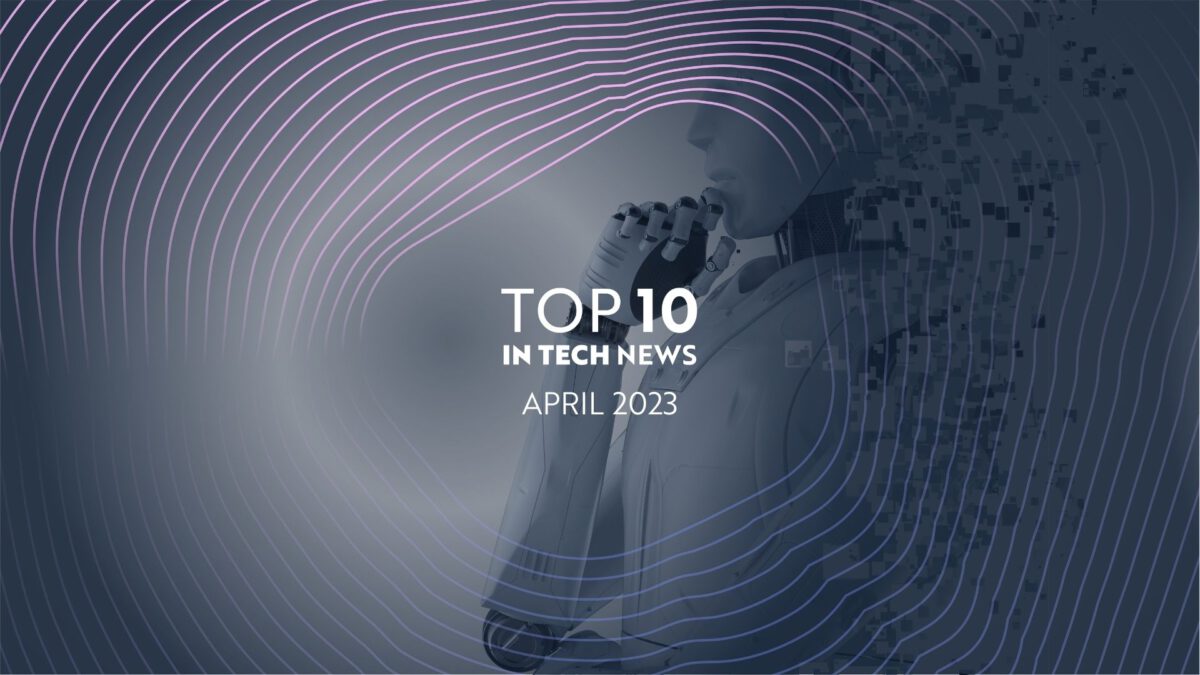
1- Apple’s E5 Project: Non-Invasive Blood Glucose Monitoring Feature for Smartwatches
Apple has achieved significant progress in developing a non-invasive and continuous blood glucose monitoring feature for its smartwatch, under a project codenamed E5. This initiative aims to measure glucose levels in the body without requiring blood pricks. Apple is optimistic about eventually introducing this feature to the market, which could greatly benefit diabetics and help establish the company’s position in the healthcare industry.
Source: Bloomberg
2- Meta’s LLaMA: A Revolutionary Research Tool for AI-Based Chatbots
Meta has unveiled LLaMA, a research tool for creating AI-based chatbots and other products, in an effort to enter the AI market which has been largely dominated by Google and Microsoft. LLaMA is a large language model that ingests massive amounts of digital text and utilizes it to train software to autonomously generate content based on a given prompt, resembling OpenAI’s ChatGPT. Google also has its own model called LaMDA, while Microsoft is investing billions in OpenAI.
Source: Bloomberg
3- Microsoft’s Upgraded Bing Search Engine Now Integrated in Windows 11
In an effort to bring artificial intelligence to a large number of users, Microsoft has begun incorporating its upgraded Bing search engine into its Windows computer software. The new Bing will be added to the search box of desktop computers in the Windows 11 update, allowing over 500 million monthly users to navigate their files and the internet more easily, according to the company.
Source: Reuters
4- Microsoft Boosts AI-Based Features with OpenAI’s GPT-3 Language Model, Da vinci
Microsoft has integrated OpenAI’s GPT-3-based language model called “Davinci” into its productivity suite, including Outlook, Word, and PowerPoint, to improve their AI-based features. The integration allows users to generate text in natural language, summarize articles, and generate language for slides and email responses.
Source: Bloomberg
5- US and Canada Partner to Establish North American Semiconductor Manufacturing Corridor with IBM’s Expansion
US and Canada plan a semiconductor manufacturing corridor, starting with IBM’s expansion in Canada. Biden pledged to reduce dependence on other countries for critical minerals and semiconductors. Canadian government will spend C$250 million on the domestic semiconductor industry. IBM will make a significant investment in new packaging and testing capabilities at its Bromont facility in Quebec.
Source: Reuters
6- Snap Inc. Launches AR Enterprise Services to Revolutionize Virtual Shopping Experience
Snap Inc has launched AR Enterprise Services (ARES), a new division that will sell augmented reality (AR) technology to other companies for the first time. Snap’s AR technology enhances photos and videos of the real world with computerized images. Snap’s first product, Shopping Suite, will provide tools for companies to build features that allow customers to virtually try on clothes or view a product from all angles in 3D, which could help increase sales and reduce returns. The pricing model for business customers will be “very flexible,” according to the head of ARES, Jill Popelka.
Source: Reuters
7- OpenAI Releases GPT-4, AI Model Capable of Understanding Images and Text
OpenAI has released GPT-4, a powerful new AI model that is capable of understanding both images and text. It is available for paying users through ChatGPT Plus for a fee of $0.03 per 1,000 prompt tokens and $0.06 per 1,000 completion tokens. It has been used by several companies including Microsoft, Stripe, Duolingo, Morgan Stanley, and Khan Academy. GPT-4 is more reliable, creative, and able to handle complex input than its predecessor, GPT-3.5. It is currently being tested with Be My Eyes to help answer questions about images sent and is 82% less likely to respond to requests for disallowed content than GPT-3.5.
Source: TechCrunch
8- Amazon Rolls Out Contactless Payment Technology to Over 200 Locations Worldwide
Amazon’s contactless payment technology, which allows customers to pay using their palms, has been deployed in more than 200 locations worldwide, according to a vice president at the company. The technology is being used by independent retailers, stadiums, and universities, as well as by Whole Foods and other Amazon stores. The company recently signed a deal with Panera Bread, which will see the technology installed in two locations in St Louis initially, with plans to expand to 10 to 20 locations in the coming months. The deal is said to involve selling software and devices as a service.
Source: Reuters
9- Baidu’s Apollo Receives Approval to Test Fully Autonomous Vehicles in Shanghai
Baidu’s smart car business, Apollo, has received approval to test fully autonomous vehicles in Shanghai, according to a statement by the Chinese tech giant. Apollo currently operates driverless robotaxi services in Wuhan, Chongqing, and Beijing.
Source: Reuters
10- Bill Gates Praises OpenAI’s GPT AI Model as Revolutionary Advance in Technology
Bill Gates, Microsoft co-founder, recently wrote a blog post where he stated that OpenAI’s GPT AI model is the most revolutionary advance in technology since he first saw the modern graphical desktop environment in 1980. Gates believes that AI is as transformative as the invention of the microprocessor, the personal computer, the internet and the mobile phone, and will have a profound impact on the way people live, learn, and communicate with each other. He also urges governments and philanthropists to use AI to improve the lives of people in the developing world, and for people to “balance fears” about potential misuses of the technology.
Source: Gates Notes

